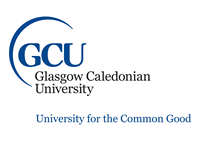Reference: SHLS20060
‘The bottom line is that much of the glue that has held British society together since the Second World War has been deliberately removed and replaced with a harsh and uncaring ethos.’
Alston (2019)
This proposal is concerned with the emergence of what Webb (2020, forthcoming) describes as “an increasingly more controlling authoritarian social work” that sees social workers as actors in a coercive and securitised policy environment. The emergence of new forms of threats such as terrorism and the COVID19 pandemic has seen subtle but far reaching changes to the ways in which social workers are deployed and the subsequent ways in which they interact with those who give some cause for concerns. It will consider how this has been accelerated by the depiction of these new threats in media discourse. It will also consider the ways in which this discourse sees social workers imbricated in the construction and maintenance of what Maguire and Low (2019) describe as “securityscapes” Hospitals, Day Care, Residential Care facilities and communities identified as at risk from violent extremism or COVID19 are transformed into secure spaces where a “dual health and security logic” (Virilio 2015) is deployed to reduce the spread of contamination and infection.
McKendrick and Finch (2019, 2020) have described the ways in which COVID19 emergency legislation and the PREVENT policy have become a driver of a reductionist form of social work that is dominated by risk work that pays scant attention to the broader socio political drivers of violent extremism and the spread of the pandemic. Media portrayals of the responses to COVID19 and countering violent extremism are frequently compared to significant historical moments including remembrances of a war time spirit and British values of stoicism and endurance. This proposal will consider the ways in which these issues are conceived in this way the “story” of issues is distilled into a “communicative event”, in other words how they are portrayed as an existential threat that justifies a response that sees the state act in ways out with the normal democratic settlements that are familiar to the population.
Deploying an ethnographic approach this PhD will use Hall’s model of encoding and decoding to explore the ways in which stories concerning contemporary existential threats are circulated, internalised, accepted and / or rejected by social workers working in statutory and voluntary settings and the influence these stories have on the development of new forms of social work practice that are characterised by securitisation, authoritarianism, coercion and the restriction of rights and liberties.
How to Apply
This project is available as a 3 years full-time or 6 years part-time PhD study programme with expected start date of 1 October 2021
Candidates are encouraged to contact the research supervisors for the project before applying.
For full-time study of this project, apply here
For part-time study of this project, apply here
Applicants shortlisted for the PhD project will be contacted for an interview within four weeks from the closing date.

 Continue with Facebook
Continue with Facebook



